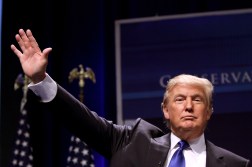President Barack Obama laid out several directives in his latest speech on National Security Agency reforms, one focusing specifically on big data. The changes are in response to the public outcry following the news that the agency collected massive amounts of data on U.S. citizens.
To meet the challenges at the intersection of big data and privacy, the president has tasked some of the brightest minds in the country with conducting a comprehensive review.
The group will consist of government officials who, along with the President’s Council of Advisors on Science and Technology, will work with technologists, business leaders and privacy experts to discuss the privacy-security conundrum.
In his address, Obama said these individuals will “look how the challenges inherent in big data are being confronted by both the public and private sectors; whether we can forge international norms on how to manage this data; and how we can continue to promote the free flow of information in ways that are consistent with both privacy and security.”
John Podesta, counselor to the president, will lead the review of privacy and big data.
Aureus Analytics, an analytics service company that released its 2014 predictions recently, said this upcoming year will see even more of big data than previous years.
According to that forecast, tighter government controls around data privacy will result in improved data access, and even small organizations will build big data readiness into their systems.
“The combination of increased digital information and powerful supercomputers offers intelligence agencies the possibility of sifting through massive amounts of bulk data to identify patterns or pursue leads that may thwart impending threats,” Obama said in his speech. “It’s a powerful tool. But the government collection and storage of such bulk data also creates a potential for abuse.”
Bill Press, vice-chair of PCAST and professor of computer science and integrative biology at the University of Texas at Austin, told FedScoop the initiative is just getting started.
“We’re getting organized to be responsive to the president’s request,” he said.
Press indicated the effort would be over a 90-day period.




